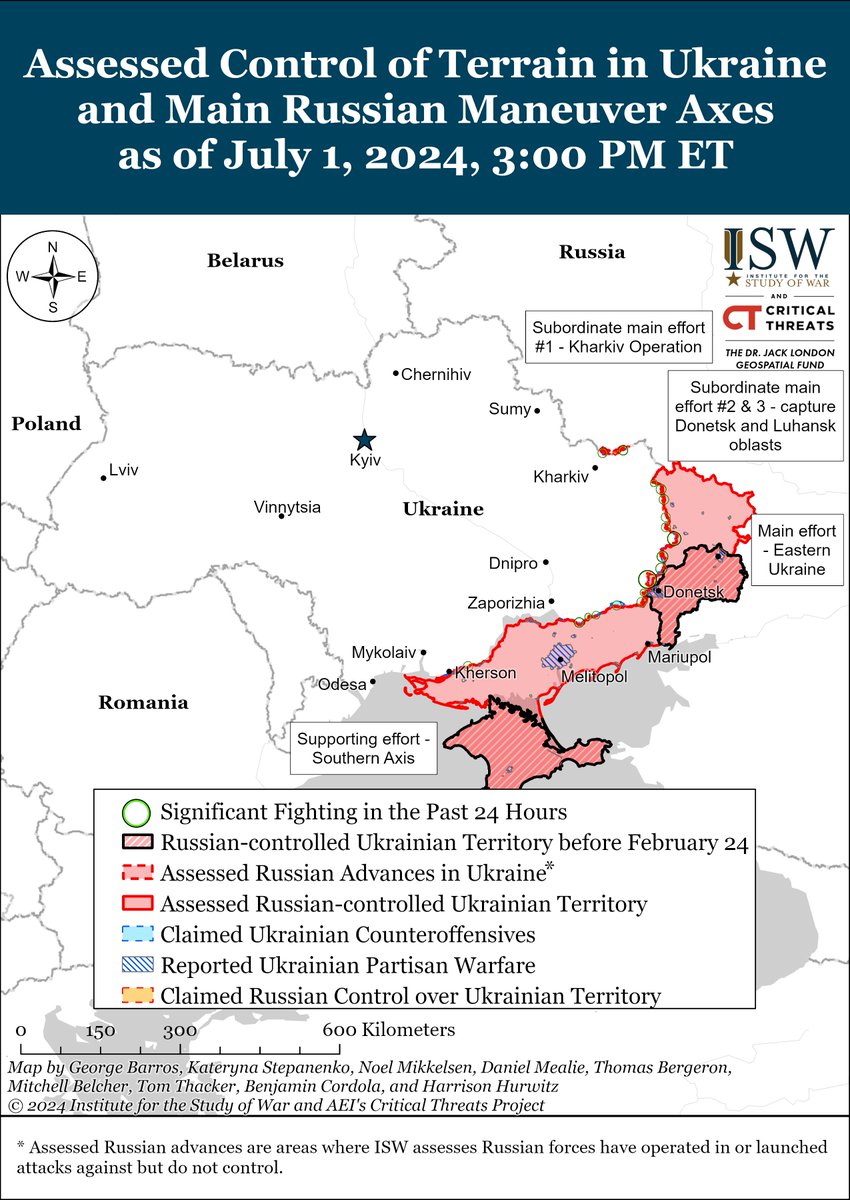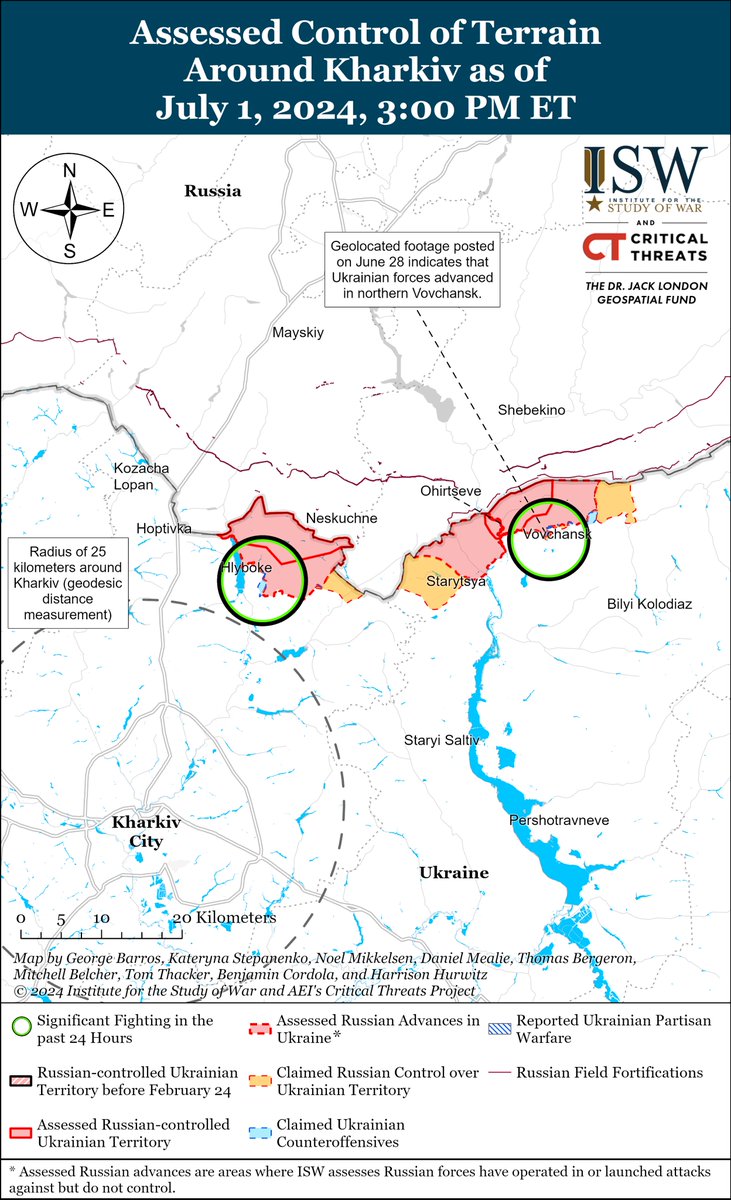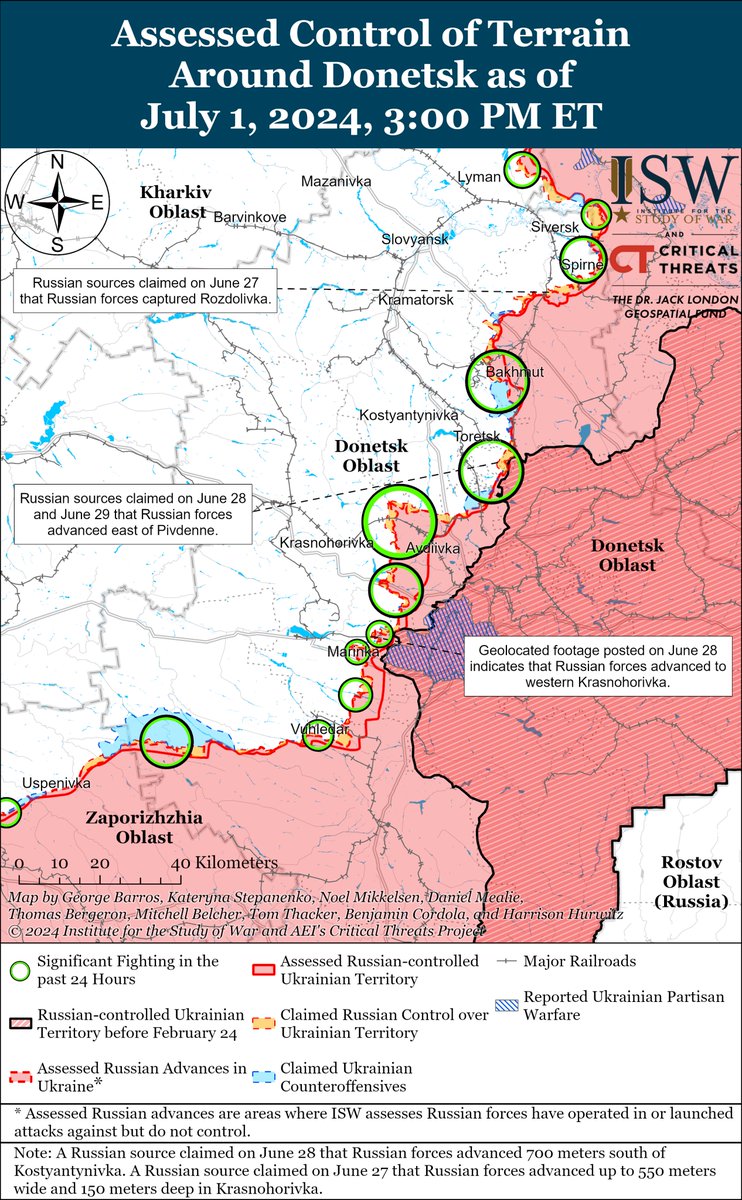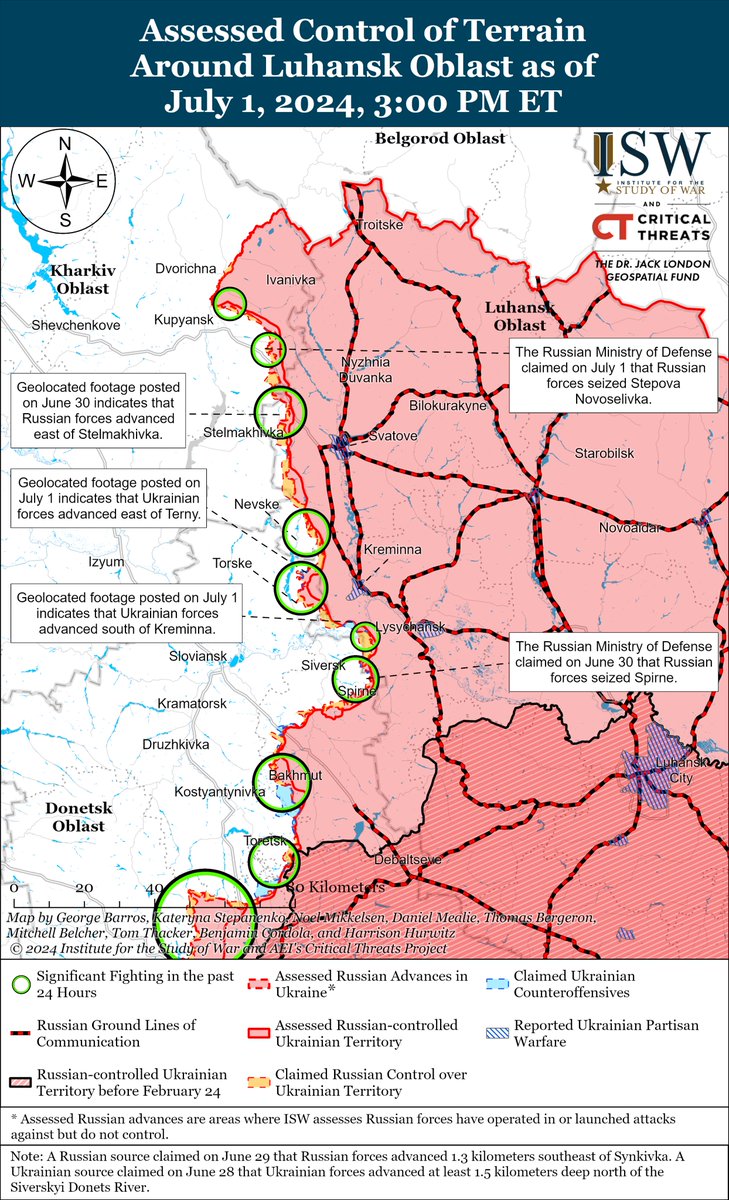Putin is demanding both the surrender of a significant portion of Ukraine's territory and people to Russian occupation and Ukrainian military capitulation in advance of any negotiations on an end-state to the war. (🧵1/7)
https://x.com/TheStudyofWar/status/1809387811264479349
2/ Putin called for the complete Ukrainian withdrawal from "Donbas and Novorossiya" as a prerequisite for ending the war during his press conference with Orban.
3/ This is a reference to Putin's June 14 demand for Ukraine to recognize the Russian occupation of occupied Kherson, Zaporizhia, Donetsk, and Luhansk oblasts and for Ukraine to surrender all territory that Russia does not currently hold in the four oblasts.
4/ The imagined borders of "Novorossiya" are disputed among Russian ultranationalists, however, and Putin and the Kremlin have routinely indicated that they hold aims of territorial conquest beyond the administrative boundaries of the 4 oblasts that Russia has illegally annexed.
5/ Putin also invoked concerns on July 4 about Ukrainian military reconstitution and expansion during a potential ceasefire to call for Ukraine's "irreversible" "demilitarization" as a prerequisite to negotiations.
6/ Putin has long called for Ukraine's "demilitarization" — a demand that Ukraine abandon its ability to resist Russian aggression so that Putin can freely impose his will upon Ukraine.
7/7 Putin would almost certainly use Ukraine's capitulation to achieve his other goal of deposing Ukraine's democratically elected government and replacing it with a pro-Russian government and a political system to his liking.
Read the full report here: isw.pub/UkrWar070524

Read the full report here: isw.pub/UkrWar070524
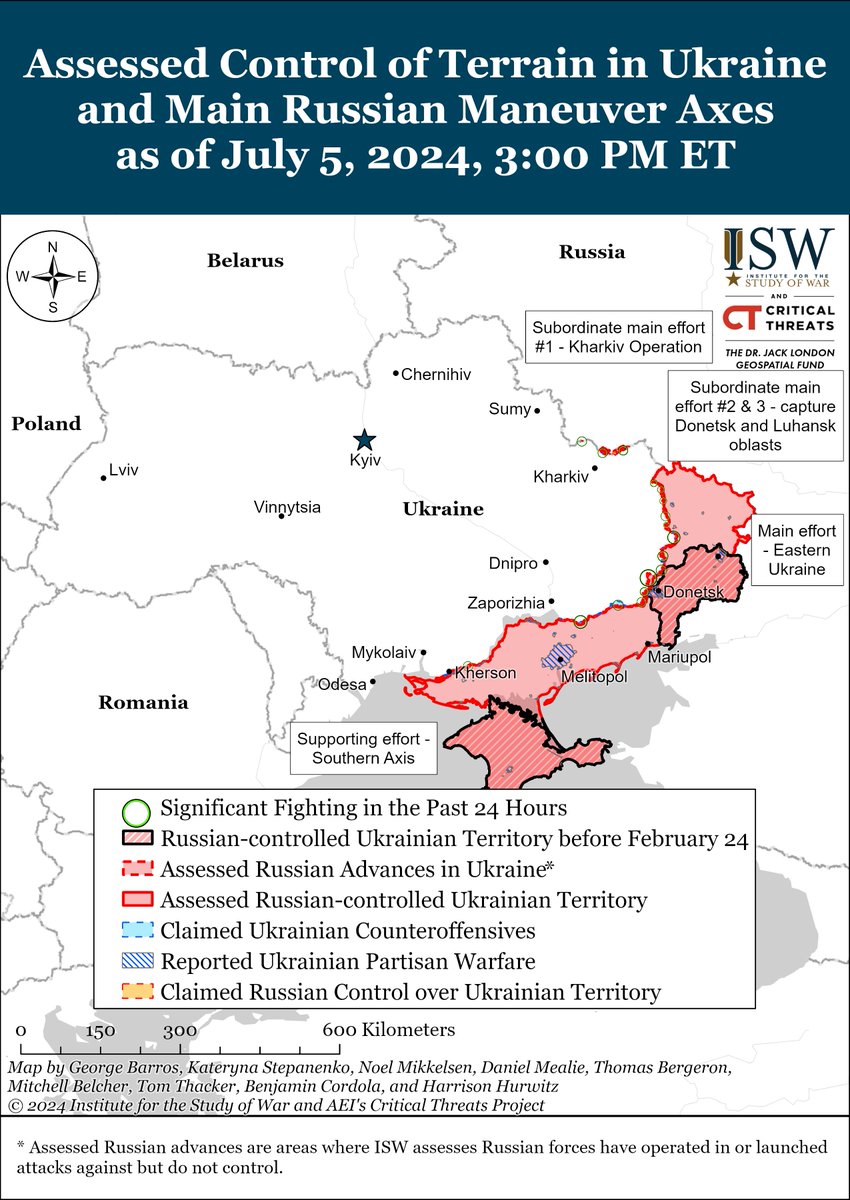
• • •
Missing some Tweet in this thread? You can try to
force a refresh


















